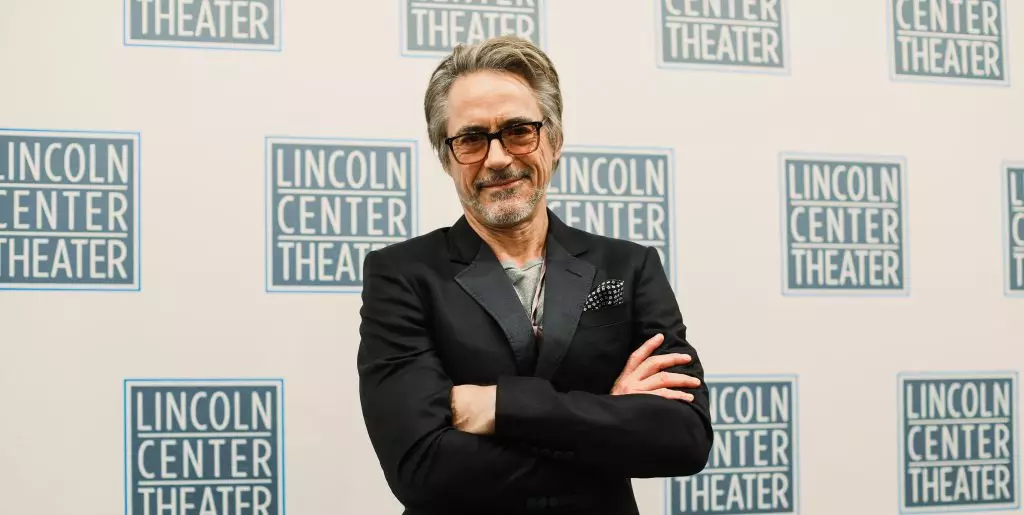In the sprawling landscape of Hollywood, where technology rapidly evolves and narratives around artificial intelligence (AI) dominate discussions, Robert Downey Jr. stands out as a critical voice, specifically against the facsimile recreation of actors via generative AI. While many in the industry are exploring AI’s creative potentials, Downey’s apprehensions serve as a harbinger of ethical concerns regarding future applications of this evolving technology. Recently, in an engaging podcast conversation alongside playwright Ayad Akhtar and director Bartlett Sher, the actor articulated his nuanced views on this pressing issue.
Downey’s reflections delve into the intimate connection between technology and human experience. He expressed that, unlike the detached curiosity often accompanying discussions about AI, he prefers to ground his commentary in personal sentiment. “I have an actual emotional life that’s occurring that doesn’t have a lot of room for [AI discussions],” he explained. This statement not only showcases his focus on authentic human experiences but also insinuates that a larger portion of the industry may prioritize technological advancement over emotional integrity.
Moreover, the actor questioned the motivations behind the deployment of AI by companies and individuals. By voicing concern over the moral psychology of those driving AI innovations, Downey emphasizes that the responsibility does not solely lie with the technology itself but within the human decisions that govern its applications. This perspective is crucial, as it calls for a deeper examination of the intentions and ethical frameworks of the individuals behind AI technologies.
In discussions of his iconic character, Tony Stark, Downey expressed confidence in the current decision-makers at Marvel, suggesting they possess a strong ethical compass that would protect his character’s essence from exploitation through generative AI techniques. However, his apprehension about future executives with different values highlights an essential conversation about the longevity of an actor’s legacy and the ownership of digital likenesses in an era where creativity is increasingly reliant on data and algorithms.
His lighthearted quip about intending to “sue all future executives just on spec” introduces an ironic layer to the discussion, humorously underscoring serious legal implications that could arise as the technology matures and digital recreations become commonplace. This statement serves as a reminder of the uncharted territories navigated by artists and actors in safeguarding their intellectual property in an AI-driven narrative landscape.
Interestingly, while Downey demonstrates skepticism regarding the recreation of his likeness, he also acknowledges a more open-minded stance toward AI through his investments in AI companies. His comments suggest that he navigates a duality in his engagement with AI—one being a cautious critique about authenticity and ethics, while the other embraces a potential for positive impact through responsible innovation.
His inquiry into the “moral psychology” of those involved in AI hints at a profound understanding that, beyond the technology itself, the ethos guiding its application significantly influences outcomes. Downey’s position suggests that actors and creators have a stake in how AI evolves; they could become integral to shaping a future where technology complements human creativity rather than supplants it.
As the actor’s new work, *McNeal*, unfolds, where he portrays a novelist who utilizes AI to craft narratives, the intersection of AI and traditional storytelling comes to the forefront. This role embodies the complexities of integrating new technologies into artistic endeavors and the existential inquiries that arise from such intersections. However, the mixed reviews the production received indicate that while AI might offer innovative avenues for expression, it does not necessarily guarantee success in the realm of storytelling.
Robert Downey Jr.’s critical examination of AI underscores the pressing need for ethical considerations in the development and application of new technologies within the entertainment industry. His dual approach, combining skepticism with a willingness to engage, illustrates a broader discourse on the relationship between humanity and innovation. As actors, creators, and audiences tread further into a digitally enhanced future, it is crucial to foster dialogue and practices that protect the integrity of the art while embracing the potential that technology can offer. In a world brimming with possibilities, it is essential to remember that technology should serve to enhance, not undermine, the human experience and the artistry that stems from it.
